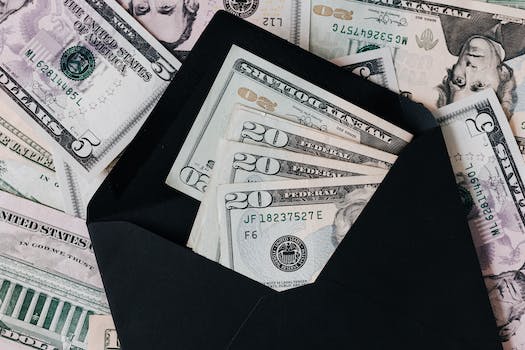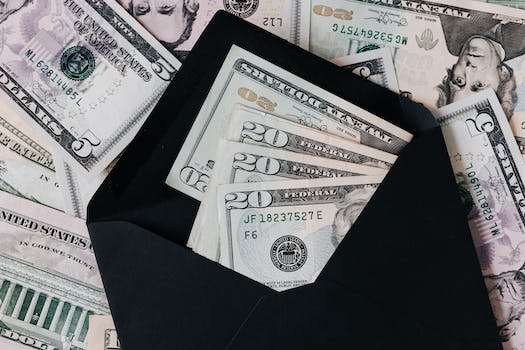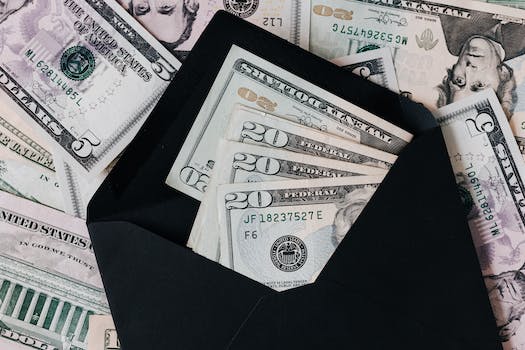How To Save Money Budget Planning
“Take control of your finances with effective budget planning.”
Introduction
Introduction: Budget planning is an essential aspect of managing personal finances. It helps individuals to track their expenses, prioritize their spending, and save money for future goals. In this article, we will discuss some tips on how to save money through budget planning.
5 Simple Steps to Create a Budget Plan and Save Money
Are you tired of living paycheck to paycheck? Do you want to save money but don’t know where to start? Creating a budget plan is the first step towards financial freedom. In this article, we will discuss five simple steps to create a budget plan and save money.
Step 1: Determine Your Income and Expenses
The first step in creating a budget plan is to determine your income and expenses. Make a list of all your sources of income, including your salary, bonuses, and any other sources of income. Next, make a list of all your expenses, including rent/mortgage, utilities, groceries, transportation, and entertainment. Be sure to include all your expenses, no matter how small they may seem.
Step 2: Categorize Your Expenses
Once you have a list of all your expenses, categorize them into fixed and variable expenses. Fixed expenses are those that remain the same each month, such as rent/mortgage and car payments. Variable expenses are those that can change from month to month, such as groceries and entertainment. Categorizing your expenses will help you identify areas where you can cut back and save money.
Step 3: Set Financial Goals
Setting financial goals is an important step in creating a budget plan. Determine what you want to achieve financially, whether it’s paying off debt, saving for a down payment on a house, or building an emergency fund. Having a clear goal in mind will help you stay motivated and focused on your budget plan.
Step 4: Create a Budget
Now that you have a clear understanding of your income, expenses, and financial goals, it’s time to create a budget. Start by subtracting your expenses from your income to determine your disposable income. Next, allocate your disposable income towards your financial goals and expenses. Be sure to prioritize your financial goals and allocate enough money towards them each month.
Step 5: Track Your Spending
Tracking your spending is an essential part of budget planning. It will help you identify areas where you can cut back and save money. There are many ways to track your spending, including using a spreadsheet, a budgeting app, or simply writing down your expenses in a notebook. Whatever method you choose, be sure to track your spending regularly and adjust your budget as needed.
In conclusion, creating a budget plan is a simple yet effective way to save money and achieve financial freedom. By following these five simple steps, you can create a budget plan that works for you and your financial goals. Remember to be patient and stay committed to your budget plan, and you will see the results in no time.
The Importance of Tracking Your Expenses for Effective Budget Planning

Budget planning is an essential aspect of financial management. It helps you to keep track of your expenses and ensure that you are not overspending. However, creating a budget plan is not enough. You need to track your expenses to ensure that you are sticking to your budget plan. In this article, we will discuss the importance of tracking your expenses for effective budget planning.
Tracking your expenses is the process of recording all your spending. It involves keeping a record of every penny you spend, including small purchases like coffee or snacks. Tracking your expenses helps you to identify where your money is going and how much you are spending on each item. This information is crucial in creating an effective budget plan.
One of the benefits of tracking your expenses is that it helps you to identify areas where you can cut back on spending. For instance, if you notice that you are spending too much money on eating out, you can decide to reduce the number of times you eat out in a week. This will help you to save money and stick to your budget plan.
Tracking your expenses also helps you to avoid overspending. When you have a record of all your spending, you can easily see how much money you have left for the month. This will help you to avoid spending money that you do not have and prevent you from going into debt.
Another benefit of tracking your expenses is that it helps you to plan for future expenses. When you have a record of your spending, you can easily identify areas where you need to save money. For instance, if you notice that you are spending too much money on entertainment, you can decide to reduce your entertainment budget and save the money for future expenses like a vacation or a down payment on a house.
Tracking your expenses also helps you to stay motivated to stick to your budget plan. When you see how much money you are saving by sticking to your budget plan, you will be motivated to continue doing so. This will help you to achieve your financial goals faster.
There are several ways to track your expenses. You can use a spreadsheet, a budgeting app, or a pen and paper. Whichever method you choose, ensure that you record all your spending accurately. It is also important to review your expenses regularly to ensure that you are sticking to your budget plan.
In conclusion, tracking your expenses is an essential aspect of effective budget planning. It helps you to identify areas where you can cut back on spending, avoid overspending, plan for future expenses, and stay motivated to stick to your budget plan. Therefore, if you want to achieve your financial goals, it is important to track your expenses and create an effective budget plan.
How to Cut Down on Monthly Bills and Save Money
Saving money is a goal that many people have, but it can be difficult to achieve without proper planning. One of the best ways to save money is by cutting down on monthly bills. By taking a closer look at your expenses and making some changes, you can significantly reduce your monthly bills and put more money in your pocket. Here are some tips on how to cut down on monthly bills and save money.
First, take a look at your utility bills. This includes your electricity, gas, and water bills. One way to save money on these bills is by reducing your usage. You can do this by turning off lights and electronics when you’re not using them, taking shorter showers, and using energy-efficient appliances. You can also consider switching to a cheaper utility provider if there are better deals available in your area.
Next, take a look at your phone and internet bills. These bills can add up quickly, especially if you have multiple lines or a high-speed internet plan. One way to save money on these bills is by bundling your services. Many providers offer discounts if you bundle your phone, internet, and cable services together. You can also consider switching to a cheaper provider if there are better deals available.
Another way to save money on monthly bills is by cutting down on your grocery expenses. This can be done by meal planning and buying in bulk. By planning your meals ahead of time, you can avoid impulse purchases and make sure you’re only buying what you need. Buying in bulk can also save you money in the long run, as you’ll be paying less per unit.
If you have a car, take a look at your car insurance and gas expenses. One way to save money on car insurance is by shopping around for the best rates. You can also consider raising your deductible, which will lower your monthly premium. To save money on gas, try carpooling or using public transportation whenever possible.
Finally, take a look at your entertainment expenses. This includes things like cable TV, streaming services, and going out to eat. One way to save money on entertainment is by cutting back on these expenses. You can cancel your cable TV subscription and switch to a cheaper streaming service, or cook at home instead of going out to eat. You can also look for free or low-cost entertainment options in your area, such as parks, museums, and community events.
In conclusion, cutting down on monthly bills is a great way to save money. By taking a closer look at your expenses and making some changes, you can significantly reduce your monthly bills and put more money in your pocket. Remember to take a look at your utility bills, phone and internet bills, grocery expenses, car expenses, and entertainment expenses. By making some small changes in each of these areas, you can save a significant amount of money each month.
Smart Ways to Save Money on Groceries and Household Items
Saving money is a goal that many people have, but it can be difficult to achieve without proper planning. One area where people can save money is on groceries and household items. By making a few changes to your shopping habits and budget planning, you can save money without sacrificing quality.
One of the first things you can do to save money on groceries is to plan your meals in advance. This means taking the time to sit down and create a weekly or monthly meal plan. By doing this, you can make a list of the ingredients you need and avoid buying unnecessary items. This will also help you avoid the temptation to eat out or order takeout, which can be expensive.
Another way to save money on groceries is to buy in bulk. This is especially true for non-perishable items like rice, pasta, and canned goods. Buying in bulk can save you money in the long run, as you won’t have to buy these items as frequently. Just be sure to check the expiration dates and make sure you have enough storage space.
When it comes to fresh produce, it’s important to buy what’s in season. This not only ensures that you’re getting the freshest produce, but it’s also usually cheaper. You can also save money by buying generic or store-brand items instead of name-brand products. Many times, these products are just as good as the name-brand ones, but cost less.
Another way to save money on household items is to make your own cleaning products. There are many recipes available online for making your own cleaning solutions using simple ingredients like vinegar, baking soda, and lemon juice. Not only are these solutions cheaper than store-bought products, but they’re also better for the environment.
When it comes to buying household items like toilet paper, paper towels, and cleaning supplies, it’s important to stock up when they’re on sale. Many stores offer discounts on these items periodically, so keep an eye out for sales and coupons. You can also save money by buying these items in bulk, just like with groceries.
One final tip for saving money on groceries and household items is to shop around. Don’t be afraid to compare prices at different stores and online retailers. You may find that one store has better prices on certain items, while another store has better prices on others. By shopping around, you can ensure that you’re getting the best deals possible.
In conclusion, saving money on groceries and household items is possible with a little bit of planning and effort. By creating a meal plan, buying in bulk, buying generic or store-brand items, making your own cleaning products, stocking up on sale items, and shopping around, you can save money without sacrificing quality. With these tips, you’ll be on your way to a more budget-friendly lifestyle in no time.
Tips for Sticking to Your Budget Plan and Achieving Your Financial Goals
Budget planning is an essential part of managing your finances. It helps you keep track of your income and expenses, and ensures that you have enough money to cover your bills and save for the future. However, sticking to a budget plan can be challenging, especially if you are used to spending money without thinking about the consequences. In this article, we will share some tips on how to save money by sticking to your budget plan and achieving your financial goals.
The first step in budget planning is to create a realistic budget that takes into account your income and expenses. Start by listing all your sources of income, including your salary, bonuses, and any other sources of income. Next, list all your expenses, including your rent or mortgage, utilities, groceries, transportation, and any other bills you have to pay. Be sure to include any debt payments you have, such as credit card payments or student loans.
Once you have a clear picture of your income and expenses, you can start to create a budget plan. Start by setting aside a certain amount of money each month for your bills and other expenses. Then, set aside a portion of your income for savings and investments. This will help you build up a nest egg for emergencies and future expenses.
One of the most important tips for sticking to your budget plan is to track your spending. Keep a record of all your expenses, including small purchases like coffee or snacks. This will help you see where your money is going and identify areas where you can cut back. You can use a budgeting app or spreadsheet to track your spending, or simply keep a notebook with you to jot down your expenses.
Another tip for sticking to your budget plan is to avoid impulse purchases. Before making a purchase, ask yourself if you really need the item and if it fits into your budget. If you are tempted to make an impulse purchase, wait a day or two before making the purchase. This will give you time to think about whether the purchase is really necessary and whether you can afford it.
One of the biggest challenges of sticking to a budget plan is dealing with unexpected expenses. To prepare for these expenses, set aside a portion of your income each month for emergencies. This can help you cover unexpected expenses like car repairs or medical bills without derailing your budget plan.
Finally, it is important to stay motivated and focused on your financial goals. Set specific goals for yourself, such as paying off debt or saving for a down payment on a house. Celebrate your successes along the way, and don’t be too hard on yourself if you slip up occasionally. Remember that budget planning is a process, and it takes time and effort to achieve your financial goals.
In conclusion, budget planning is an essential part of managing your finances and achieving your financial goals. By creating a realistic budget plan, tracking your spending, avoiding impulse purchases, preparing for unexpected expenses, and staying motivated, you can stick to your budget plan and save money for the future. With a little effort and discipline, you can achieve financial freedom and security.
Conclusion
Conclusion: Budget planning is an essential tool for saving money. By creating a budget, you can track your expenses, identify areas where you can cut back, and prioritize your spending. It’s important to be realistic when creating a budget and to regularly review and adjust it as needed. With discipline and commitment, budget planning can help you achieve your financial goals and build a secure future.





